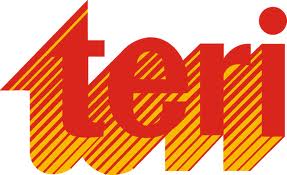 Resource-efficiency in developing economies to fuel debate at TERI’s flagship Summit, Featuring an illustrious array of distinguished Heads of State, Nobel Laureates, Policymakers and Corporate leaders
Resource-efficiency in developing economies to fuel debate at TERI’s flagship Summit, Featuring an illustrious array of distinguished Heads of State, Nobel Laureates, Policymakers and Corporate leaders
New Delhi, January 23, 2013: The 13th edition of The Energy and Resources Institute’s (TERI) widely popular Delhi Sustainable Development Summit (DSDS) is all set to witness focussed discussions among global leaders on resource-efficient growth, climate change and protection of natural resources. The three-day Summit, which will be held at Hotel Taj Palace in New Delhi from January 31-February 02, 2013, is themed “The Global Challenge of Resource-Efficient Growth and Development”–one of the most pressing challenges faced by the world today.
In a significant gesture, the Prime Minister of India, Dr. Manmohan Singh, will be officially raising the curtain on the DSDS this year. Pushing the agenda for sustainable growth, the Summit aims to provide an efficient platform for thought leaders and policymakers to discuss effective policy mechanisms to reduce energy and resource footprint. The Summit seeks to not only build a global consensus to protect natural resources, but also to explore innovative solutions to boost efficient practices and minimise unsustainable consumption patterns
Highlighting the Summit’s role in framing the global agenda on sustainable development, Dr. R K Pachauri, Director-General, TERI, India, said, “Sustainable Development as a concept was popularized by the Brundtland Commission, but hardly received attention from influential world leaders till very recently. DSDS was launched in 2001 with foresight on the crucial importance of converting this concept into worldwide practice. Over the years with the involvement of world leaders from every section of human endeavour, sustainable development has moved from a concept to policies and programmes in different parts of the globe. DSDS has been an important instrument in bringing about this change.
The 13th edition of the widely popular Summit will feature a dazzling array of distinguished luminaries, including Mr Donald Ramotar, President, Government of Guyana; Mr James Alix Michel, President, Seychelles; Mr Anote Tong, President, Republic of Kiribati; Ms Tarja Halonen, Former President, Finland; Mr Haruhiko Kuroda, President, Asian Development Bank; Mr Donald Kaberuka, President, African Development Bank; Mr Nassir Abdulaziz Al-Nasser, President, sixty-sixth session of the UN General Assembly; The Rt. Hon. The Lord John Prescott, House of Lords, UK; Nobel Laureate Carlo Rubbia, Scientific Director, Institute for Advanced Sustainability Studies, Germany; Prof. Jeffrey D. Sachs, Director, The Earth Institute, Columbia University, USA and Mr Thomas L Friedman, Foreign Affairs Columnist, The New York Times, USA.
The eminent guests will engage in highly interactive and informative discussions on myriad themes such as Adapting to the Impacts of Climate Change; Mitigating Emissions of Greenhouse Gases and Associated Co-benefits; Employment and Growth Potential of a Green Economy; Choices before the BRICS and a New Economic Construct; Sustainable Development and the New Knowledge Economy; and Defining the Future We Want.
A central novelty at DSDS this year will be the thematic tracks, which will allow for detailed discussions on niche topics. Global Trends in Sustainable Production And Consumption with a special focus on edible oils; Mindset of Green Growth; Post-2015 Development Agenda and the Energy Future We Want for All; Reducing Inequalities: a Sustainable Development Challenge and Low carbon sustainable mobility for all will be some of the key areas on which parallel discussions will take place on the sidelines of the Summit.
In addition, the tenth World CEO Sustainability Summit (WCSS)—themed ‘Resource Revolution: A Global Imperative and How Business Can Shape It’–will witness an impressive congregation of corporate leaders exchanging views on the role of business in protecting resources.
Revealing the rationale behind the Summit’s central theme, Dr. Pachauri asserted, We are living in a world where the demand for several resources is growing faster than the addition to their reserves. High resource use intensity is also associated with economic inefficiency. Hence, improving the efficiency of use of resources in an economy can often be achieved at low or negative cost, thereby providing economic gains. Most importantly, using resources efficiently also makes it possible for the poor to gain access to them, which otherwise they may not be able to afford.
According to numerous studies, India—like many other nations—is staring at an impending scarcity in the wake of increasing and unplanned consumption of non-renewable resources. A TERI study had indicated that the total commercial energy consumption in India would increase by 7.5 times between 2001 and 2031, under a business as usual scenario. In addition, imports of coal, oil and gas are also expected to increase manifold in the next couple of decades.
To overcome this stark situation, the need of the hour is to identify and address the systemic roadblocks to sustainable development. Undoubtedly, framing strong policies and ensuring their effective implementation will require unprecedented levels of cooperation between international governments. Through the DSDS series, TERI aims to herald this much-needed change by enabling nations, scientists, experts and policymakers to join hands in saving the planet.
About The Delhi Sustainable Development Summit (DSDS)
Launched in 2001, TERI’s flagship event, the Delhi Sustainable Development Summit (DSDS), has evolved into a global forum where Heads of State, Nobel Laureates, international policymakers, heads of multilateral institutions and corporate bodies, celebrities, youth and concerned citizens converge to discuss globally-relevant issues.
Since its inception, the DSDS series has enjoyed support and participation from over 33 heads of state and ministers from more than 43 countries, exemplifying its global appeal and relevance. For further details, please visit: http://dsds.teriin.org/2013
